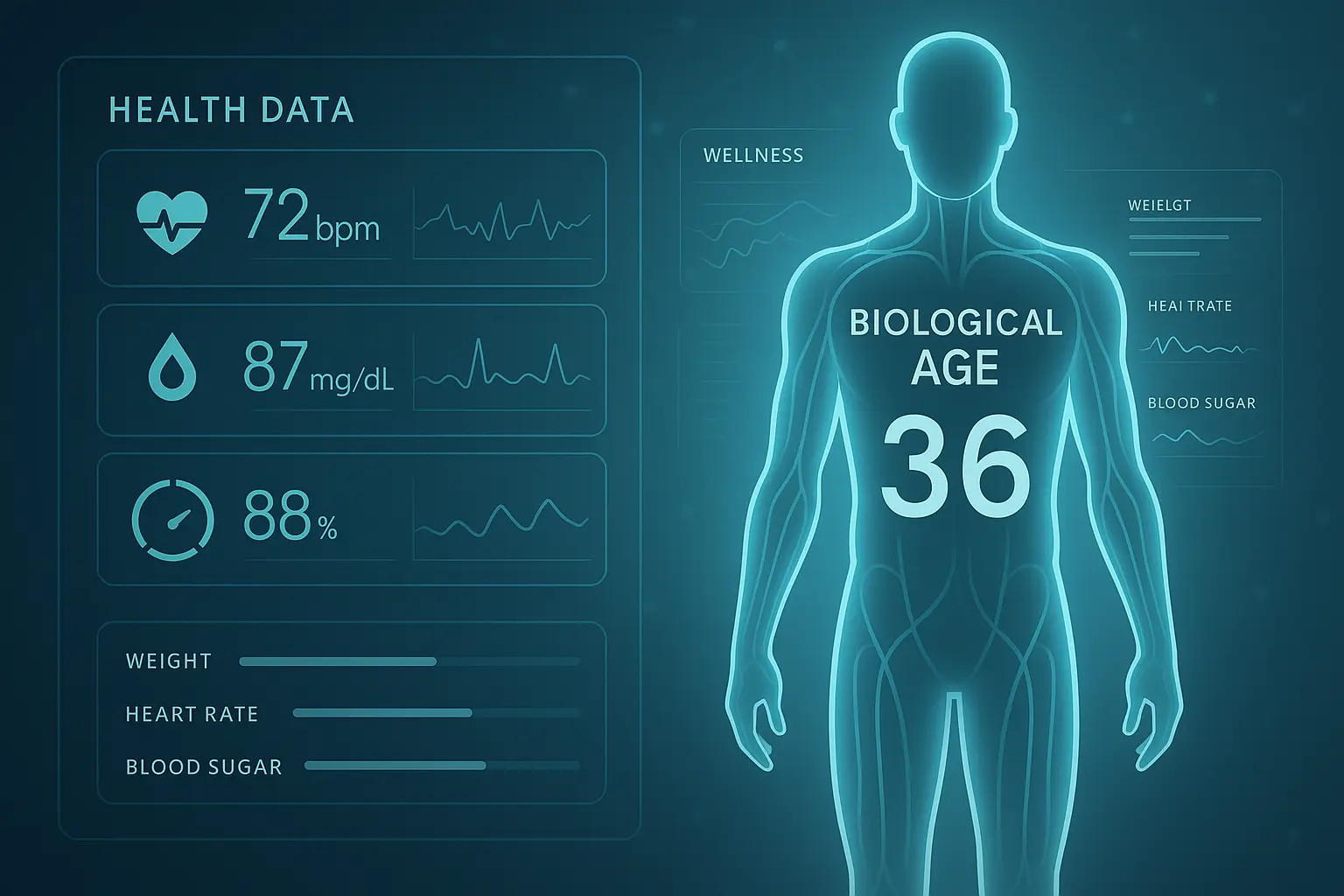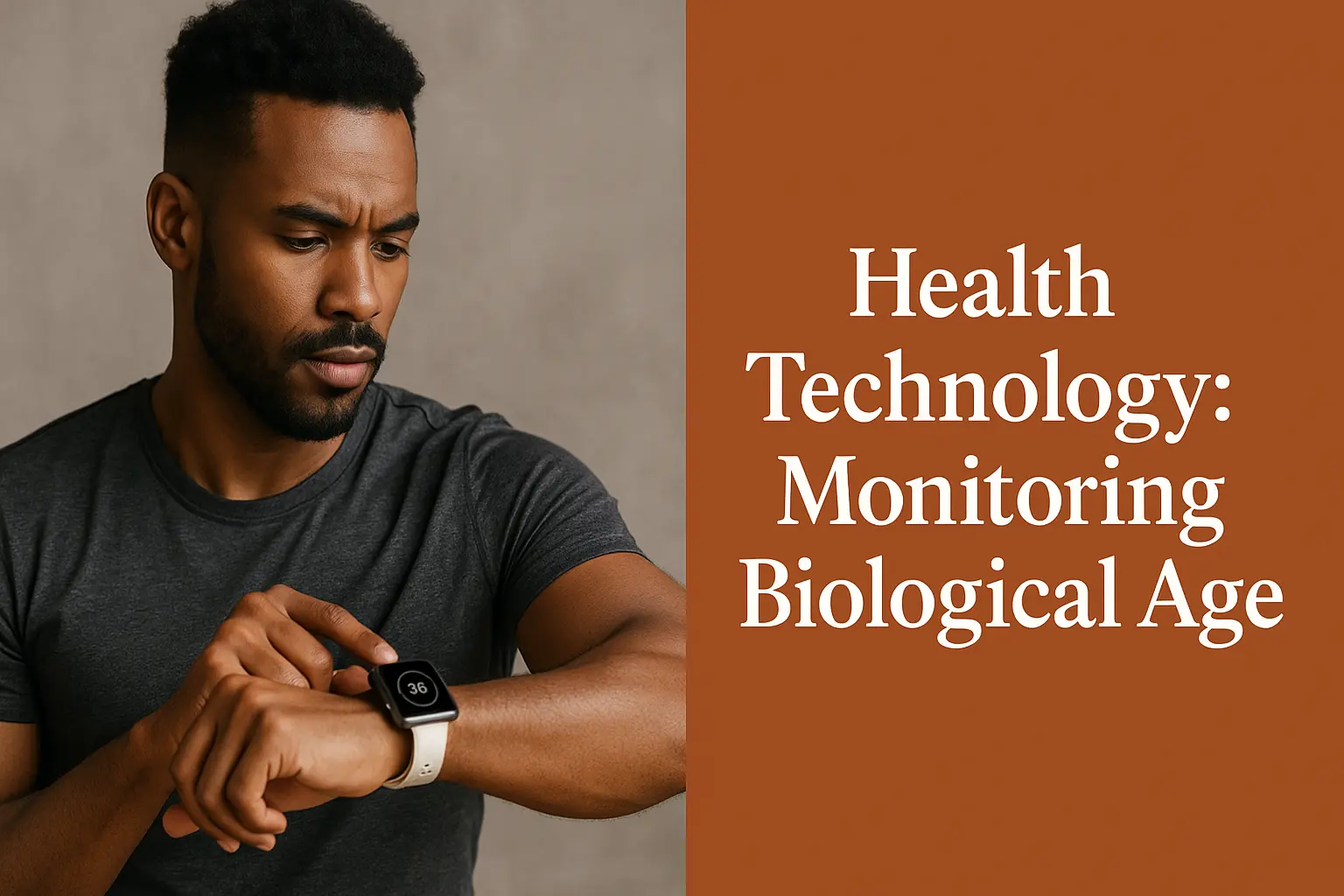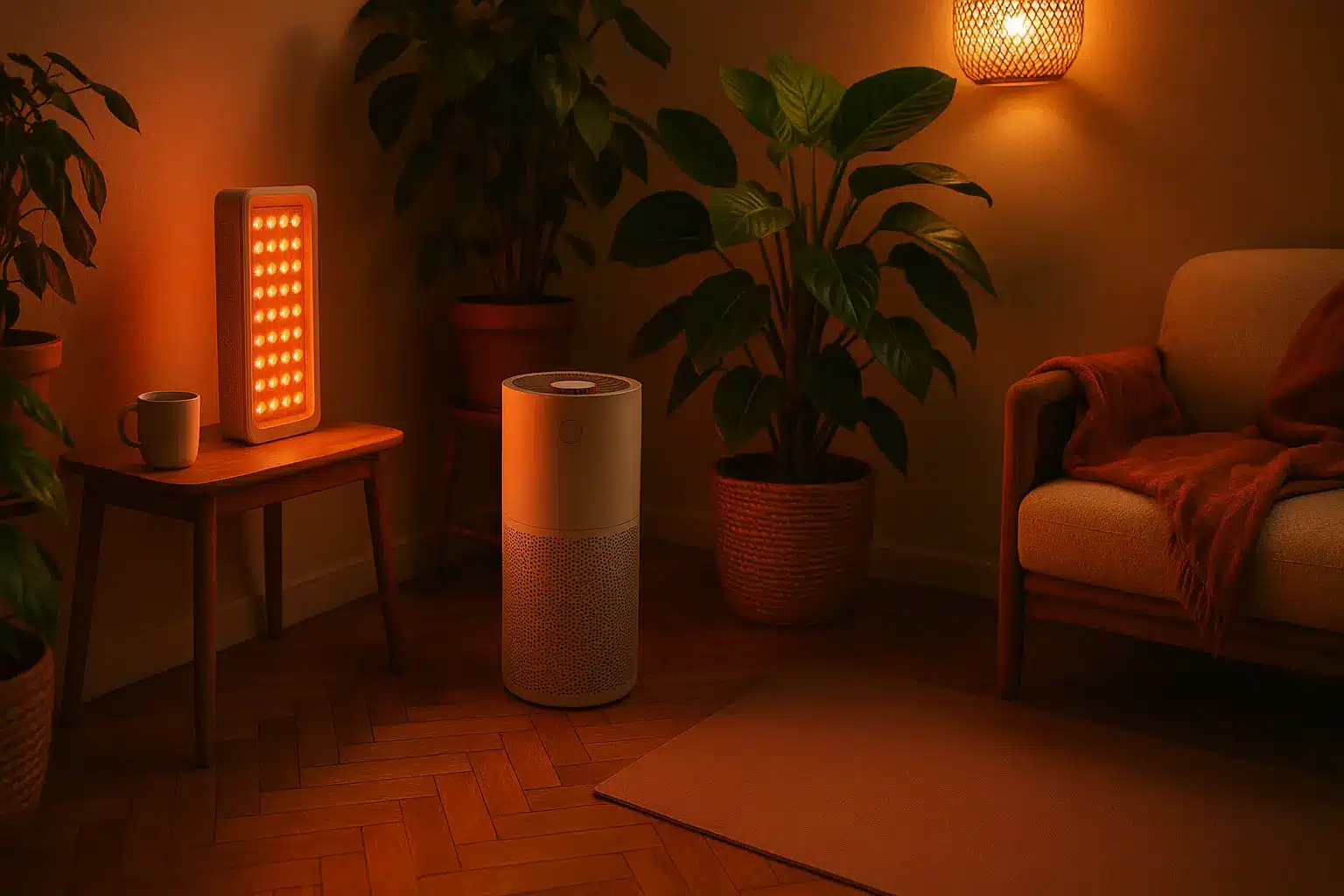You may be 35—but are your organs acting like they’re 50? In 2025, health isn’t measured just by numbers on a scale or blood pressure readings. The real game-changer? Biological age—and a new wave of health tech that tracks it down to the organ level.

What Is Biological Age and Why It Matters
Biological age refers to how well your body is functioning, as opposed to how many years you’ve been alive. Unlike chronological age, it factors in:
- Organ performance
- Metabolic efficiency
- Cellular health
- Stress load
- Lifestyle choices (sleep, nutrition, alcohol, movement)

How the New Tools Work (Example: Health Octo Tool)
In early 2025, researchers at the University of Washington launched the Health Octo Tool, a breakthrough diagnostic platform that:
- Measures 8 key health metrics (blood markers, physical strength, lung & kidney function)
- Calculates your “entropy of health” — how organized vs. chaotic your body systems are
- Predicts risk for disability or early mortality
- Tracks biological age changes over time

How You Can Track and Improve Your Biological Age at Home
Biological age tracking isn’t just for labs or billionaires anymore. Here’s how regular people are using tech to stay younger, longer:
- Wearables: Devices like WHOOP, Oura Ring, and Garmin track sleep, recovery, HRV, and stress load
- Apps: Tools like InsideTracker or Zoe give AI-based insights into metabolic and cellular health
- Home tests: Saliva and blood kits now offer epigenetic age testing and nutrition-based age estimation
- Daily optimization: Regular exercise, circadian-aligned routines, cold therapy, and blood sugar tracking

FAQ
Q: How accurate is biological age testing?
A: Accuracy depends on method. Epigenetic age tests and clinical biomarker tools are more precise than basic online quizzes.
Q: Can you reverse your biological age?
A: In many cases, yes. Lifestyle changes (exercise, sleep, diet, stress reduction) have been shown to significantly improve biological markers over time.
Q: Are these tools expensive?
A: Some kits are under $100. Wearables start around $250 and apps often offer free or freemium versions.
Ready to Track Yours?
Curious how old your body really is?
Subscribe to Wonderine for the latest in longevity science, AI-driven wellness tools, and smart aging insights that actually work.




